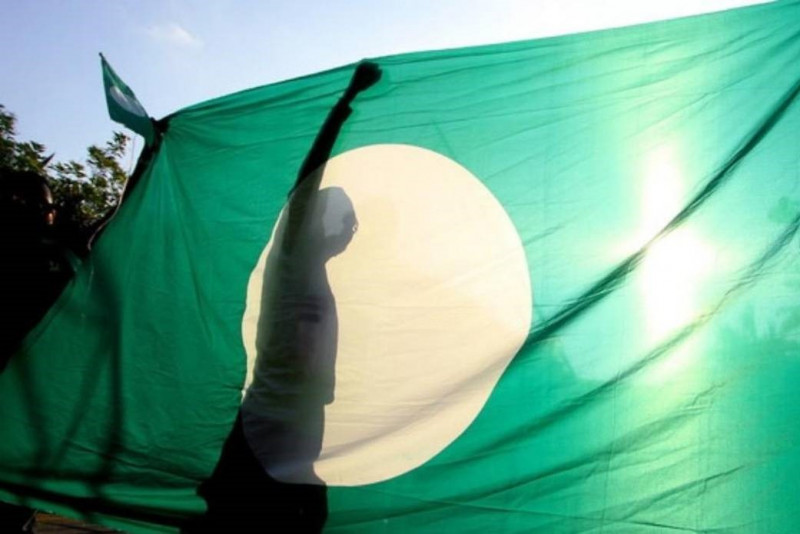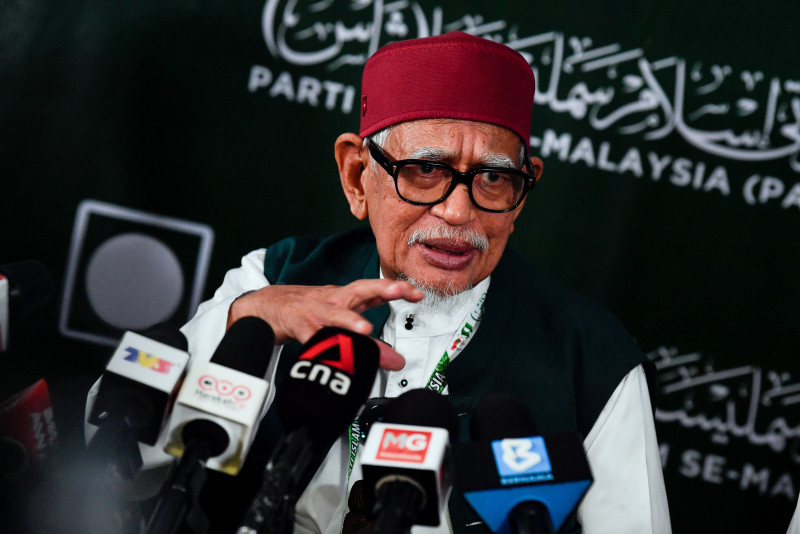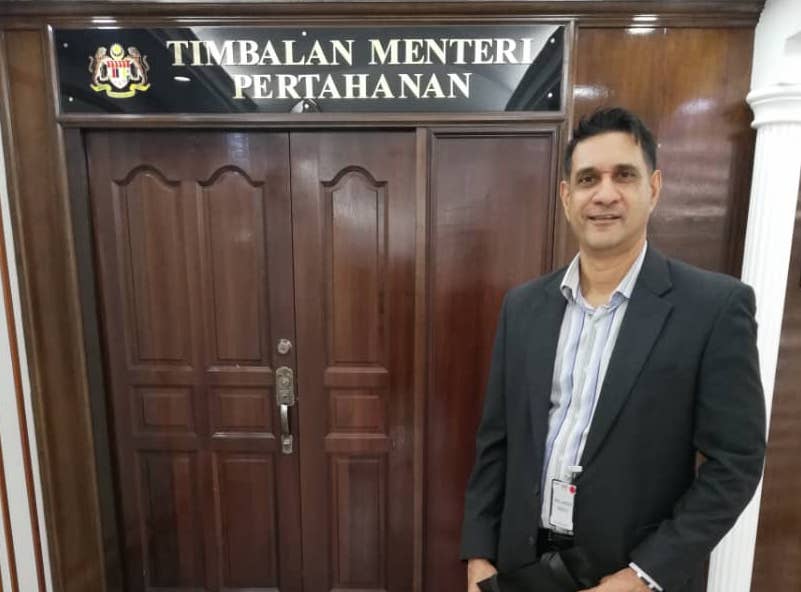theVibes.com:
Does PAS have the makings of a radical group?
Islamist party’s sometimes extreme views can be breeding ground for terrorism, say experts

Even in recent years, a number of PAS’ actions have shown that it is divisive and intolerant towards other races and religions, with some of its statements and policies encroaching on the rights of non-Muslims. – Bernama pic, September 4, 2022
KUALA LUMPUR – In July 2017, the Indonesian government took the drastic measure of disbanding the local branch of Islamist group Hizbut Tahrir for threatening national unity and violating the state ideology, which promotes moderation.
While the action was roundly condemned by rights groups for being undemocratic, the republic deemed the move necessary to preserve harmony.
The Joko Widodo-led administration took no chances, with the organisation – which calls for the implementation of the shariah law and re-establishment of the Islamic caliphate – expanding in Indonesia over the years and its ideology serving as an initial radicalisation driver for many.
Closer to home, a similar hardline religious politics adopted by PAS has now raised concerns about growing extremism in a country that has been largely peaceful since its independence.
That the police have initiated a probe into its president Tan Sri Abdul Hadi Awang – after dozens of reports were lodged over his comment that non-Muslims make up the majority of corruptors – proved as much the threat that he and his party poses to Malaysia’s security and unity.
KUALA LUMPUR – In July 2017, the Indonesian government took the drastic measure of disbanding the local branch of Islamist group Hizbut Tahrir for threatening national unity and violating the state ideology, which promotes moderation.
While the action was roundly condemned by rights groups for being undemocratic, the republic deemed the move necessary to preserve harmony.
The Joko Widodo-led administration took no chances, with the organisation – which calls for the implementation of the shariah law and re-establishment of the Islamic caliphate – expanding in Indonesia over the years and its ideology serving as an initial radicalisation driver for many.
Closer to home, a similar hardline religious politics adopted by PAS has now raised concerns about growing extremism in a country that has been largely peaceful since its independence.
That the police have initiated a probe into its president Tan Sri Abdul Hadi Awang – after dozens of reports were lodged over his comment that non-Muslims make up the majority of corruptors – proved as much the threat that he and his party poses to Malaysia’s security and unity.

Last year, PAS courted controversy when several of its leaders, including Tan Sri Abdul Hadi Awang, issued statements recognising Taliban’s return to power in war-torn Afghanistan, with the president describing the Deobandi Islamist movement as a more mature outfit today. – Bernama pic, September 4, 2022
What is more troubling is that Hadi’s statement is not an anomaly.
Even in recent years, a number of PAS’ actions have shown that it is divisive and intolerant towards other races and religions, with some of its statements and policies encroaching on the rights of non-Muslims.
Among other things, it had fervently objected to the organisation of cultural celebrations like Bon Odori and concerts involving international artists, and going as far as to control the sales of alcoholic beverages in states under its administration.
It has also consistently pressed on the need for Malaysia to be ruled by a Malay-Muslim government, disparaging other minority groups.
Last year, the party courted controversy when several of its leaders, including Hadi, issued statements recognising Taliban’s return to power in war-torn Afghanistan, with the president describing the Deobandi Islamist movement as a more mature outfit today.
Speaking to The Vibes, experts weigh in on PAS’ threat to the peace long-established in Malaysia and the need for more moderation and tolerance, as is demanded under Islamic teachings.
Radical views can spark violence
The Indonesian Council of Ulama’s Prevention for Extremism and Terrorism Bureau deputy secretary Rakyan Adibrata said while PAS has never outrightly promoted violence for political goals, the extreme views it hold could radicalise the public and influence them into segregation, particularly those who connect with its political identity.
This is especially concerning, he said, as radical groups that consume such rhetoric may have the tendency to justify violence with what is promoted by PAS.
Drawing parallels to Indonesia, Rakyan said the republic has similarly seen Islamist parties advocating radical views basing off religion, subsequently contributing to a growing number of religious extremists there.
“Certainly PAS will not support and acknowledge any terrorism group, or promote violent acts. But what they say could oftentimes incite dangerous ideas into the minds of the people.
Just like Hizbut Tahrir, they never supported terrorism, but their struggle and views has became the foundation of the way many people think. And this is where we see those who are easily influenced, sometimes joining terror groups.
“Among terror researchers, we have this term called the conveyor belt theory, where the ideas and narratives are distributed as they move along, creating a foundation of the way of thoughts of many, and is very, very dangerous.”

The Indonesian Council of Ulama’s Prevention for Extremism and Terrorism Bureau deputy secretary Rakyan Adibrata says while PAS has never outright promoted violence for political goals, the extreme views it hold could radicalise the public and influence them into segregation, particularly those who connect with its political identity. – OnFrontiers pic, September 4, 2022
Rakyan, who is also the International Association for Counterterrorism and Security Professionals country director, said despite being an Islamist party, the fact that PAS often incites disharmony contradicts Islam’s very own promotion of peace, security, comfort and protection.
“Islam is rahmatan lil alamin, rahmat meaning love and lil alamin meaning all of nature. This concept is totally the opposite of the idea and objective of politicians who promote religious identity politics.
“Political identity creates segregation, hatred between different religious believers, and certainly incites disharmony,” he said, adding that other political parties across the divide should come united in denouncing radical views.
Radical party in govt risks damaging national harmony
Nordic Counter Terrorism Network director (Finland) Andrin Raj expressed grave concern over a potential repeat of the bloodied May 13, 1969 racial riots, if the weaving of PAS' path towards radicalisation and extremism is not addressed.
“If left unchecked, similar issues that led to the riots then can mimic the intolerances among (PAS) members today,” he said, in urging for a ban on political parties from using religion to champion their goals.
Islam is being used to justify the means of religious political parties that tend to stir up disharmony,” added the Somalia Religion and Endowment Ministry adviser on the preventing and countering of extremism and terrorism.
He also called on the government to act against PAS for creating disunity and segregation in Malaysia’s multiracial society.
According to Andrin, radicalisation in Malaysia has evolved more today compared to some 15 years ago, although it may not be directly linked to “terrorism”.
However, he warned of the likelihood of Malaysia becoming more radical in its governance, including the imposing of radical Islamic ideologies, if a party promoting such views is elected into the government.
Rakyan, who is also the International Association for Counterterrorism and Security Professionals country director, said despite being an Islamist party, the fact that PAS often incites disharmony contradicts Islam’s very own promotion of peace, security, comfort and protection.
“Islam is rahmatan lil alamin, rahmat meaning love and lil alamin meaning all of nature. This concept is totally the opposite of the idea and objective of politicians who promote religious identity politics.
“Political identity creates segregation, hatred between different religious believers, and certainly incites disharmony,” he said, adding that other political parties across the divide should come united in denouncing radical views.
Radical party in govt risks damaging national harmony
Nordic Counter Terrorism Network director (Finland) Andrin Raj expressed grave concern over a potential repeat of the bloodied May 13, 1969 racial riots, if the weaving of PAS' path towards radicalisation and extremism is not addressed.
“If left unchecked, similar issues that led to the riots then can mimic the intolerances among (PAS) members today,” he said, in urging for a ban on political parties from using religion to champion their goals.
Islam is being used to justify the means of religious political parties that tend to stir up disharmony,” added the Somalia Religion and Endowment Ministry adviser on the preventing and countering of extremism and terrorism.
He also called on the government to act against PAS for creating disunity and segregation in Malaysia’s multiracial society.
According to Andrin, radicalisation in Malaysia has evolved more today compared to some 15 years ago, although it may not be directly linked to “terrorism”.
However, he warned of the likelihood of Malaysia becoming more radical in its governance, including the imposing of radical Islamic ideologies, if a party promoting such views is elected into the government.

Nordic Counter Terrorism Network director (Finland) Andrin Raj expresses grave concern over a potential repeat of the bloodied May 13, 1969 racial riots, if the weaving of PAS' path towards radicalisation and extremism is not addressed. – File pic, September 4, 2022
Commenting specifically on Hadi’s uncalled recent statement about non-Muslims’ alleged involvement in corruption, Andrin said the president of a religious political party should have known better about making such assertion, particularly as he represents Islam.
“He does not seem to understand the teachings of the Prophet that Islam is a religion of peace, compassion, and inclusivity. Religious parties like PAS should be more tolerant in comparison to other political parties.”
Comparing PAS’ leadership under Hadi to that of the late Datuk Nik Abdul Aziz Nik Mat, Andrin noted how the latter, under his rule, was able to ensure the party had remained inclusive and tolerant of all races and religions, acknowledging the need for a united Malaysia.
This, he said, is in stark contrast to the PAS of today, which appears to only be using its former spiritual leader’s religious and political aspirations to be seen as the party responsible for uniting the Muslims.
PAS’ move towards a more radical entity had exacerbated following the death of Nik Aziz in February 2015. Under his helm, the party had taken a more moderate approach to various policies and matters, including in Kelantan, where he served as menteri besar from 1990 to 2013.
He was also central to the formation of the then Pakatan Rakyat, an opposition coalition which was declared dead just months after his passing, after PAS refused to continue cooperation with fellow component DAP. – The Vibes, September 4, 2022
Commenting specifically on Hadi’s uncalled recent statement about non-Muslims’ alleged involvement in corruption, Andrin said the president of a religious political party should have known better about making such assertion, particularly as he represents Islam.
“He does not seem to understand the teachings of the Prophet that Islam is a religion of peace, compassion, and inclusivity. Religious parties like PAS should be more tolerant in comparison to other political parties.”
Comparing PAS’ leadership under Hadi to that of the late Datuk Nik Abdul Aziz Nik Mat, Andrin noted how the latter, under his rule, was able to ensure the party had remained inclusive and tolerant of all races and religions, acknowledging the need for a united Malaysia.
This, he said, is in stark contrast to the PAS of today, which appears to only be using its former spiritual leader’s religious and political aspirations to be seen as the party responsible for uniting the Muslims.
PAS’ move towards a more radical entity had exacerbated following the death of Nik Aziz in February 2015. Under his helm, the party had taken a more moderate approach to various policies and matters, including in Kelantan, where he served as menteri besar from 1990 to 2013.
He was also central to the formation of the then Pakatan Rakyat, an opposition coalition which was declared dead just months after his passing, after PAS refused to continue cooperation with fellow component DAP. – The Vibes, September 4, 2022
No comments:
Post a Comment